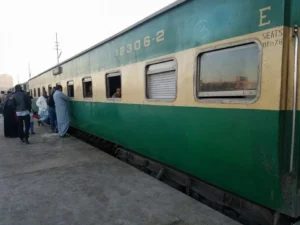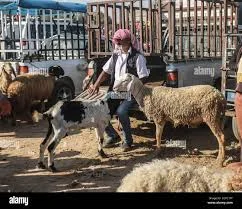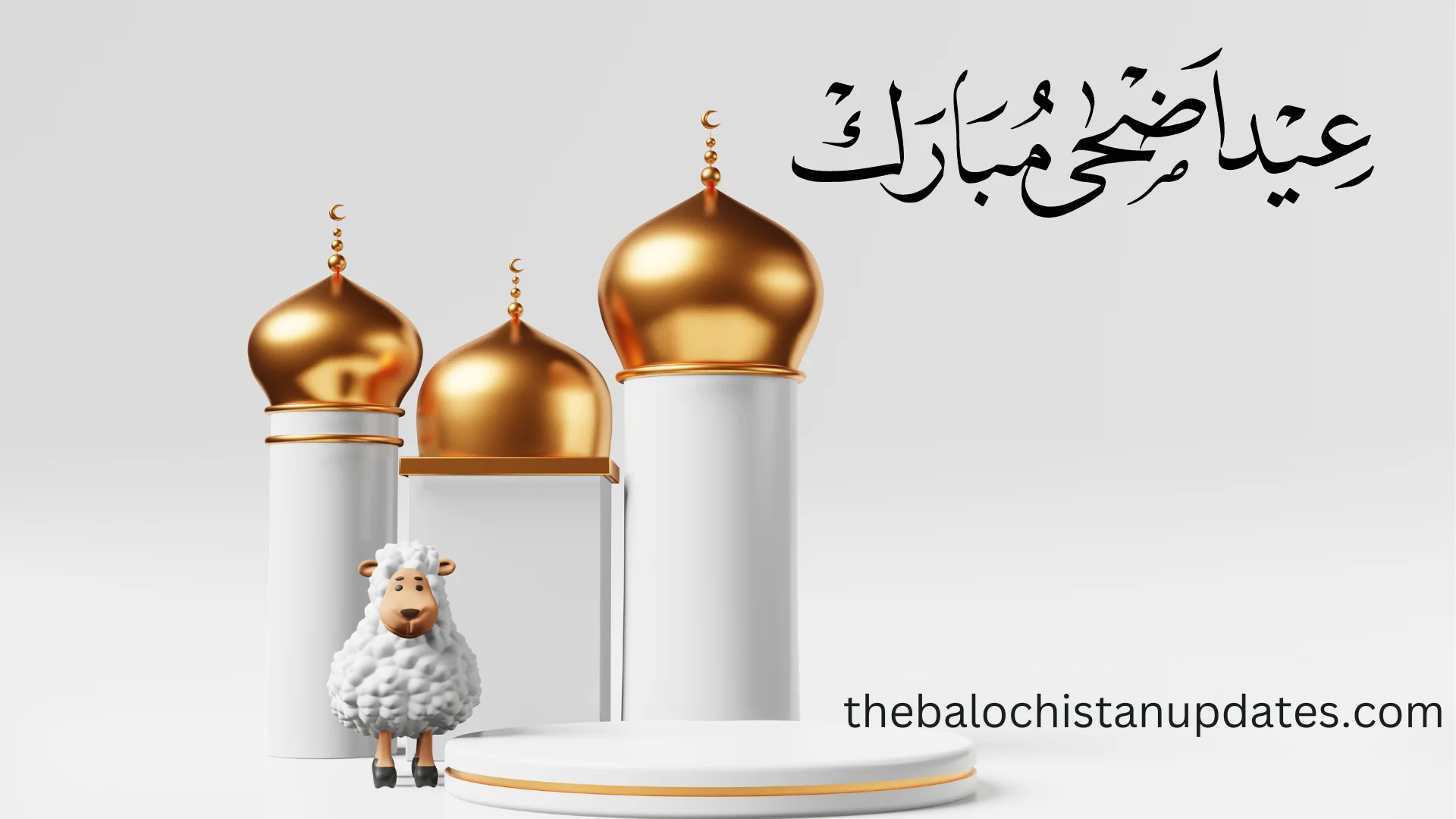Quetta: Balochistan is gearing up for Eid-ul-Adha with both festive travel and traditional sacrifices marking the occasion across the province.
Special Eid-ul-Adha Train Departs from Quetta:
On June 14, the first special Eid-ul-Adha train departed from Quetta, ushering inconvenience for travelers during the festive season. Carrying 800 passengers, the train left Quetta at 10 AM bound for Rawalpindi.

The Eid train’s route includes stops at major stations such as Sibi in Balochistan, Jacobabad and Sukkur in Sindh, and Multan, Rahim Yar Khan, Khanewal, Bahawalpur, Gujranwala, and Lahore in Punjab, with an expected arrival in Rawalpindi on June 15 at 4 PM.
Read about Eid-ul-Fitar Balochistan.
Pakistan Railways anticipates earning revenue of 1.6 million rupees from this special service. Additionally, passengers are benefiting from a special 25 percent discount offered by Pakistan Railways for this Eid special train, which consists of eleven economy-class coaches equipped with stringent security measures.
Balochistan has many colorful festivals on the occasion of Eid.
Surge in Sheep Sacrifices in Balochistan:
Ahead of Eid-ul-Adha, Balochistan is witnessing a surge in sheep sacrifices, with Quetta’s livestock markets bustling with activity. Wealthy livestock owners have brought a significant number of sheep for sale, sourced from natural pastures including Rakhshan, Sarawan, Jhalawan, Kachhi, Machh, Koh-e-Suleiman, Kalat, Koh-e-Maran, Shorawak, and Zhob Division.

In the tribal culture of Balochistan, sheep are traditionally preferred for sacrifices. Breeds such as Marriwal, Biddi, Perkani, Lehri, Farhani, Mengali, and Balochi Dumda are prominent among the offerings, alongside breeds like Shinwari, Taraki, Khorasani, and Yazdi brought from Pashtun areas.
The average weight of Balochistan’s sacrificial sheep ranges from 35 to 45 kilograms, with prices in Quetta’s markets ranging from 50,000 to 100,000 rupees per sheep. Apart from religious significance, the wool obtained from the sheep’s skin after the sacrifice is utilized in making traditional carpets, adding cultural and economic value to the practice.
This Eid-ul-Adha, Balochistan reflects a blend of festive travel facilitation and deep-rooted cultural traditions, showcasing both the modern conveniences of special train services and the enduring customs of sacrificial offerings in celebration of the occasion.
Eid-ul-Adha festivities in Balochistan blend modern convenience with traditional customs. As special trains facilitate travel across provinces, Quetta’s bustling livestock markets witness a surge in sheep sacrifices sourced from diverse regions.
This celebration not only honors religious traditions but also enriches local culture through the sale of sheep, whose wool contributes to traditional crafts. Balochistan’s vibrant Eid-ul-Adha reflects a harmonious blend of modernity and heritage, ensuring a meaningful observance for all.
Special Message: Take Care of Cleanliness
During Eid-ul-Adha celebrations in Balochistan, let’s prioritize cleanliness alongside our festivities. Whether traveling on special trains or participating in sacrificial rituals, ensure proper disposal of waste and maintain hygiene in public spaces. Let’s collectively uphold cleanliness as we celebrate this auspicious occasion, ensuring a safe and healthy environment for everyone.


